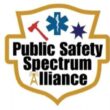FCC weighs Sprint Nextel, public-safety input
Sprint Nextel and public-safety groups have agreed that the carrier should be allowed continued use of 800 MHz interleaved channels for at least another year, but the FCC was left with the task of settling differences regarding the method by which Sprint Nextel eventually would vacate the spectrum.
Sprint Nextel asked the FCC for relief from its requirement to vacate the interleaved channels by June 26 — the FCC’s original target date for completing 800 MHz rebanding — after a federal appeals court ruled against the carrier on the matter earlier this year. Because more than half of public-safety agencies have not finished rebanding, Sprint Nextel claimed before the court that losing access to the interleaved spectrum would “cripple” its iDEN services in areas where its post-rebanding spectrum is unavailable.
With this in mind, Sprint Nextel proposed a staged clearing of the interleaved channels that would correspond with the completion of rebanding in a given region.
“The more reconfiguration advances, the more interleaved spectrum we would give up,” Sprint Nextel spokesman Scott Sloat said.
Specifically, the carrier would clear 20 channels in its interleaved spectrum immediately, then clear 40 more channels in a region when 25% of the NPSPAC licensees have rebanded and clear another 60 channels when 50% of the NPSPAC licensees have rebanded. Sprint Nextel said it would vacate an additional 80 channels when 75% and 90% thresholds are reached, and the carrier would clear all interleaved channels after all NPSPAC licensees have completed the rebanding process.
Three key public-safety organizations — the Association of Public-Safety Communications Officials, the International Association of Chiefs of Police and the International Association of Fire Chiefs — expressed general support for the Sprint Nextel proposal but wanted all interleaved channels available to public safety on 60 days’ notice after July 1, 2009.
The public-safety filing noted that first-responder agencies have a “pent-up demand” for the spectrum. Robert Gurss, APCO’s director of legal and government affairs, said public safety could begin using the frequencies relatively soon after they are made available.
“I think a lot of the use is going to be existing 800 MHz licensees who already have the equipment and probably just need to make a minor adjustment to their equipment to use the additional channels,” he said.
Sprint Nextel responded that requiring it to clear all interleaved channels after July 1, 2009, likely would create hardships for the carrier. While the FCC has targeted most public-safety rebanding waivers for completion by June 1, 2009, Sprint Nextel noted that several NPSPAC licensees are still in the planning process and likely would not complete rebanding by that date. In fact, the carrier’s filing indicates that it is “unlikely to gain full access [to its post-rebanding channels] for years” in some regions.
However, Sprint Nextel did alter its staged-clearance proposal by stating that it would agree to clear the interleaved channels in a given geographic region within 60 days of a public-safety agency being prepared to operate on the spectrum, if 75% of the NPSPAC licensees in the region have rebanded, lowering the threshold from 90%.
The FCC was expected to rule on the matter shortly after press time.
WAIVER MANIA
June 17
FCC grants 500 waivers to NPSPAC licensees to complete rebanding by July 1, 2009, or seek another waiver. The agency also grants corresponding waivers to Sprint Nextel.
June 19
Sprint Nextel seeks relief from FCC ruling that requires it to vacate its interleaved channels by June 26.
June 20
FCC provides Sprint Nextel with a 30-day extension to use the interleaved channels while the commission considers the carrier’s waiver request.
June 26
FCC’s initial deadline for completing rebanding.
July 14
FCC grants 40 waivers to NPSPAC licensees to complete rebanding by July 1, 2009, and grants additional time to two licensees.
July 26
Deadline for FCC to act on Sprint Nextel’s interleaved-channel proposal.
Source: FCC













